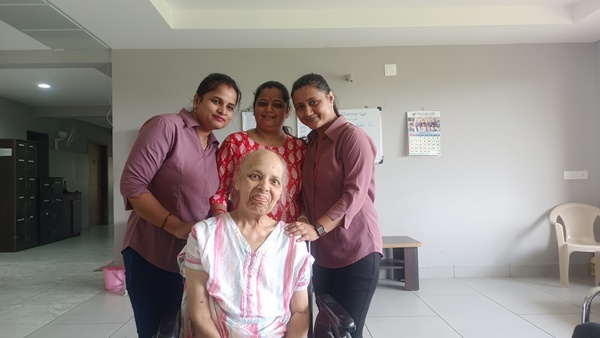Dementia is a diagnosis that turns life upside down—not only for the individual with it, but for their entire support network of loved ones. With time, the disease ravages memory, communication, and behavior, bringing a sense of emotional distance that may be hard to overcome.
But the reality is, connection remains—and is highly valued. By tweaking expectations and learning new ways of relating, you can stay emotionally close and continue to enjoy shared moments. You’re a spouse, adult child, or dear friend, and these tactics can assist you in keeping a loving relationship intact despite the challenges of dementia care for older adults.
Focus on the Feeling, Not the Facts
One of the most difficult aspects of dementia is the forgetting of shared memories or recognition. Your loved one might forget your name or get you mixed up with someone else. That hurts, but remember: emotional memory tends to survive longer than factual memory.
Even if they don’t remember your relationship exactly, they may still feel safe, calm, or happy in your presence. Your tone of voice, your smile, and your patience all communicate love—regardless of words or names.
When visiting or interacting, focus on creating positive emotional experiences, rather than trying to force memory recall. That emotional connection can still be powerful.
Let the Past Guide Your Present
Consider what your loved one liked prior to their diagnosis. Were they an avid gardener? Did they enjoy dancing or card playing? Old hobbies—even in their adapted versions—can provide familiarity and comfort.
For instance:
- Play music they once enjoyed and dance with them.
- Create a secure garden space with flowers or herbs.
- Have them assist with a simple craft or household task.
These activities provide purpose and belonging. In senior dementia care professionally, such activity is part of person-centered care—respecting the individual through their history.
Short Moments Are More Powerful Than Long Visits
Caregivers often feel they need to spend hours talking to their loved one. But when dementia robs focus and energy, small, significant moments are more helpful.
Replace marathon visits or activity-displeasing outings with:
- Sharing a snack together.
- Reading a brief poem or short story out loud.
- Sitting in a quiet area while holding hands.
These little moments of presence provide reassurance and love without overwhelming the person with dementia.
Use Positive Reinforcement Rather Than Correction
It is natural to correct your loved one when he or she says something wrong or forgetful. But repeated correction can produce confusion, shame, or even anger.
Rather than redirect firmly or acknowledge how they are feeling. When they say someone who has been dead for years, don’t say, “Remember? He died.” You could say, “He was such a good person. What do you recall about him?”
Doing so saves their dignity and keeps your interaction based on connection, not confrontation.
Create a Calm, Familiar Environment
Individuals with dementia feel safer in environments that are predictable and simple to navigate. A peaceful setting minimizes stress and maximizes their capacity for interacting with you.
- You can facilitate this by:
- Maintaining low noise levels during visits.
- Posting familiar pictures or objects.
- Employing routine (same time of day, same activity) in your interactions.
These environmental adaptations are key to high-quality dementia care for older adults, whether in their own homes or in a care facility.
Make Use of Technology Wisely
If you can’t be there in person, voice messages or video calls can still offer comfort. Make virtual visits easy: minimize distractions, talk slowly, and remain patient. Even a brief call can help keep people connected between more extended in-person visits.
In addition, think about digital picture frames that cycle through family photos or recordings of familiar voices to display during the day.
Rely on a Team, Not Just Yourself
Caregivers, too, bear a weighty emotional and logistical burden. Being near a loved one with dementia does not mean doing it all by yourself.
Professional caregivers, memory care facilities, and supportive services can give family members structure, safety, and a respite. These services aren’t only about healthcare—they provide moments for emotional connection by minimizing caregiver stress and supporting the person with dementia’s daily needs.
Compassionate and personalized quality dementia care is what seniors need. By joining forces with the right caregivers, you can spend more energy being a loving presence and less time playing taskmaster.
Conclusion: Presence Over Perfection
When dementia enters your world, things shift—but the hunger for connection doesn’t change. Even if your relationship is different now, it still matters and is important. With patience, presence, and imagination, you can remain emotionally connected—even when words slip away or memories fade.
Love evolves. Relationships change. And with the right attitude—and the right support—you don’t have to navigate this journey by yourself.



